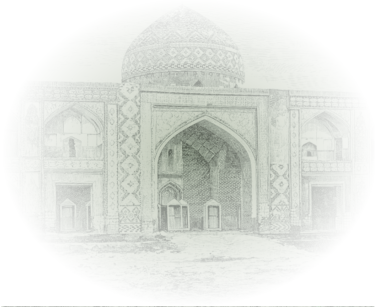Akhund Mammadbaghir Gazizade was born into the family of Haji Mehdi, the Sheikh ul-Islam and Kadi (judge) of Iravan. He received his initial education from his father and later continued his studies at a madrasa and district school, mastering both religious and secular sciences. He pursued higher religious education in Najaf, where he spent 11 years at a prestigious religious and scientific center, improving his knowledge and studying various Islamic sciences. He deeply mastered both religious and secular sciences (especially mathematics).
After completing his education, Mammadbaghir Gazizade returned to Iravan and passed the examination at the South Caucasus Spiritual Administration, earning the rank of Akhund. In 1873, he was elected a member of the Spiritual Council of the Iravan Governorate. On February 28, 1883, he was appointed chairman and Kadi of the Spiritual Council of the Iravan Governorate by the South Caucasus Shia Spiritual Administration.
From 1881 to 1910, Akhund Mammadbaghir Gazizade was engaged in pedagogical activity at the Iravan Teachers’ Seminary. Between 1881 and 1898, he taught both theology and the Azerbaijani language, and from 1898 to 1910, he served as a theology teacher.
In 1899, Mammadbaghir Gazizade played a key role in establishing a Russian-Azerbaijani school in Iravan. In 1902, he opened a Russian-Azerbaijani girls’ school in his own house in Iravan.
Akhund Mammadbaghir Gazizade, who played an important role in the socio-political, religious-cultural, and pedagogical life of Iravan, was one of the authors of the book Ana Dili (Mother Tongue), published in 1911 by the Kultura publishing house in Tiflis.
For his effective pedagogical and public service, Mammadbaghir Gazizade was awarded a silver medal in 1882 and the Order of St. Anna in 1898.
Akhund Mammadbaghir Gazizade passed away in 1911 in Iravan.
Source:
Fərrux Rüstəmov. İrəvan Müəllimlər Seminariyası və onun məzunları. Bakı: Elm və təhsil, 2022
